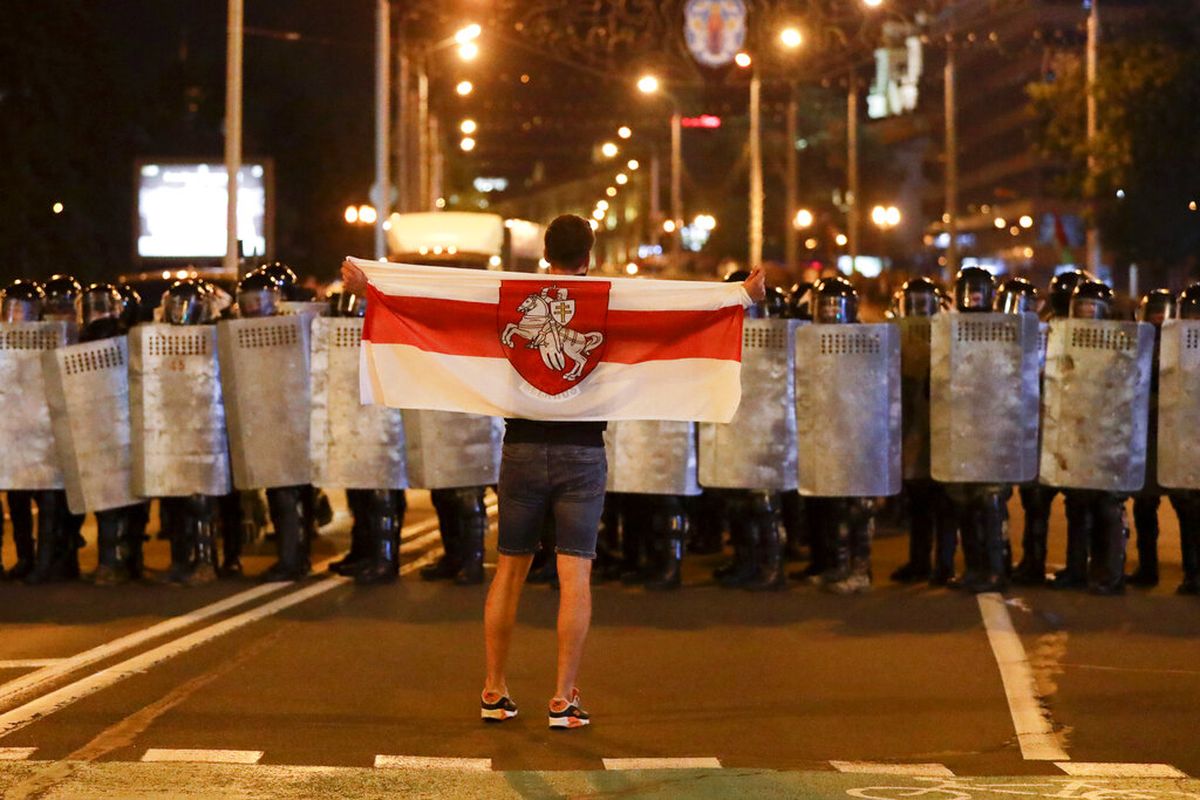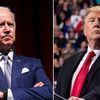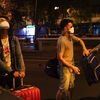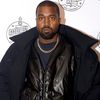Protests in Belarus Following Disputed Presidential Election Results

Valery Tsepkalo's wife Veronika became a top member of Tsikhanouskaya's campaign, but she left the country too early Sunday, fearing for her safety, said campaign spokeswoman Anna Krasulina.
Over the weekend, eight members of Tsikhanouskaya's campaign staff were arrested.
Many voters were defiant in the face of Alexander Lukashenko's vow not to tolerate any protests.
“There is no more fear. Belarusians will not be silent and will protest loudly," 24-year-old Tatiana Protasevich said at a Minsk polling place.
As polls opened, the country’s central elections commission said more than 40 percent of the electorate had cast ballots in five days of early voting, a process the opposition saw as offering fertile ground for manipulation.
“For five nights nobody has guarded the ballot boxes, which gives the authorities a wide field for maneuverings,” Veronika Tsepkalo told AP before leaving Belarus.
The Organization for Security and Cooperation in Europe, whose assessments of elections are widely regarded as authoritative, was not invited to send observers.
Tsikhanouskaya had crisscrossed the country, tapping into public frustration with a worsening economy and Lukashenko’s swaggering response to the pandemic.
Belarus, a country of 9.5 million people, has reported more than 68,500 coronavirus cases and 580 deaths but critics have accused authorities of manipulating the figures to downplay the death toll.
Lukashenko has dismissed the virus as “psychosis” and declined to apply measures to stop its spread, saying a lockdown would have doomed the already weak economy.
He announced last month that he had been infected but had no symptoms and recovered quickly, allegedly thanks to playing sports.
Yet for some voters, Lukashenko's long, hardline rule was a plus.
“He is an experienced politician, not a housewife who appeared out of nowhere and muddied the waters,” retiree Igor Rozhov said Sunday. “We need a strong hand that will not allow riots."
(Writers: Yuras Karmanau, Jim Heintz, Vladimir Isachenkov)
Source: https://apnews.com/d310c4f9811b31e44fa5536bb826cc5e
Simak breaking news dan berita pilihan kami langsung di ponselmu. Pilih saluran andalanmu akses berita Kompas.com WhatsApp Channel : https://www.whatsapp.com/channel/0029VaFPbedBPzjZrk13HO3D. Pastikan kamu sudah install aplikasi WhatsApp ya.

































